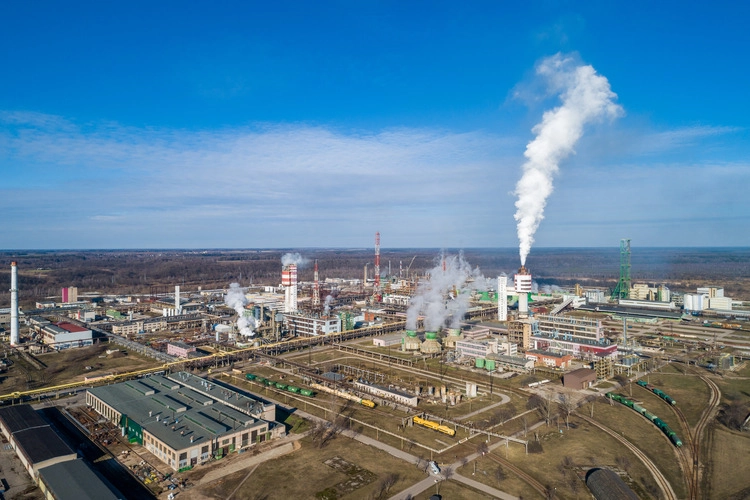
Entalpic has been backed by investors and professors in scientific community – but how does AI help to decarbonise the chemical industry?
By
A new startup that uses AI to aid a more sustainable approach to choosing materials in the chemical industry has raised more than £7 million (€8.5 million) from industry leaders including Breega, Cathay Innovation, and Felicis.
As the third-largest industrial source of greenhouse gases responsible for climate change, the chemical industry contributes to the pollution of oceans across the world, with improper disposal of waste also harming humans and ecosystems worldwide. Alone, the ammonia production process – pivotal for fertiliser manufacturing – contributes to one per cent of global CO2 emissions. Yet despite the industry’s scale, little innovation has led to a lack of change: until now.
Founded in 2024, the company, Entalpic, plans to use AI to identify and evaluate new materials and molecules that could replace more outdated industrial chemical processes. The AI platform is quickly able to conduct automated experiments from data sources – ranging from quantum simulations to physical lab experiments and academic literature – in order to deduce the most appropriate and sustainable materials to use.
As such, scientists can quickly narrow down material options and focus on the most viable and sustainable ones. It is hoped that the AI-aided processes can help to improve hydrogen production, produce sustainable cement and create better semiconductors for batteries. Eventually, solutions for pollution control, energy storage and fertiliser production will also be developed using the technology.

‘I am incredibly excited about the potential of AI to accelerate innovation in materials science, particularly in streamlining how we approach large-scale industrial challenges,’ said co-founder and Chief Scientific Officer of Entalpic Alexandre Duval.
Entalpic has also received support from a range of investors, as well as professors within the scientific community in its plans to use AI in the chemical industry.
‘Climate change represents a formidable challenge, and Entalpic’s scientifically robust approach is a promising contribution to its mitigation,’ said University of Montreal professor and scientific director at Mila, Yoshua Bengio.




